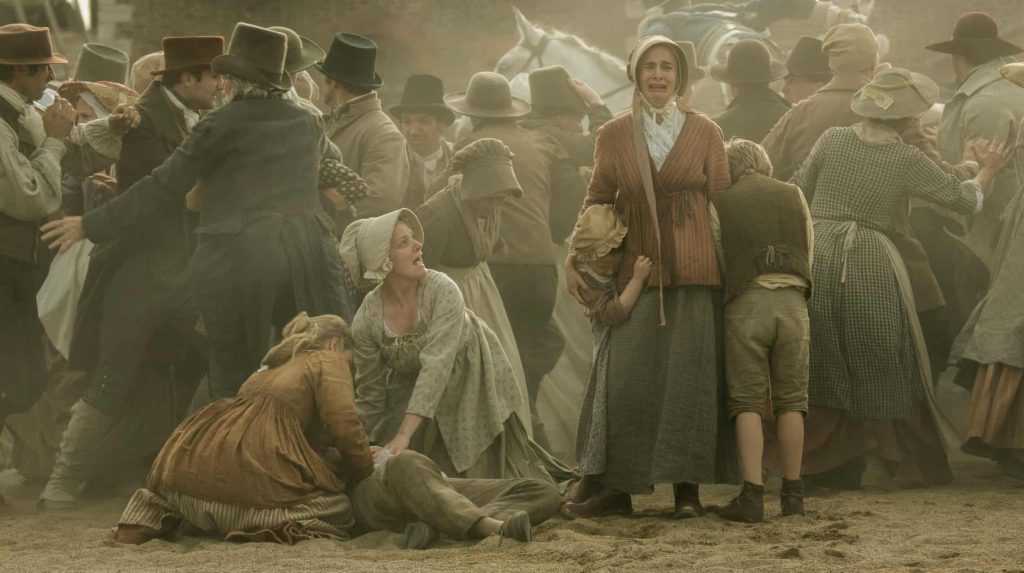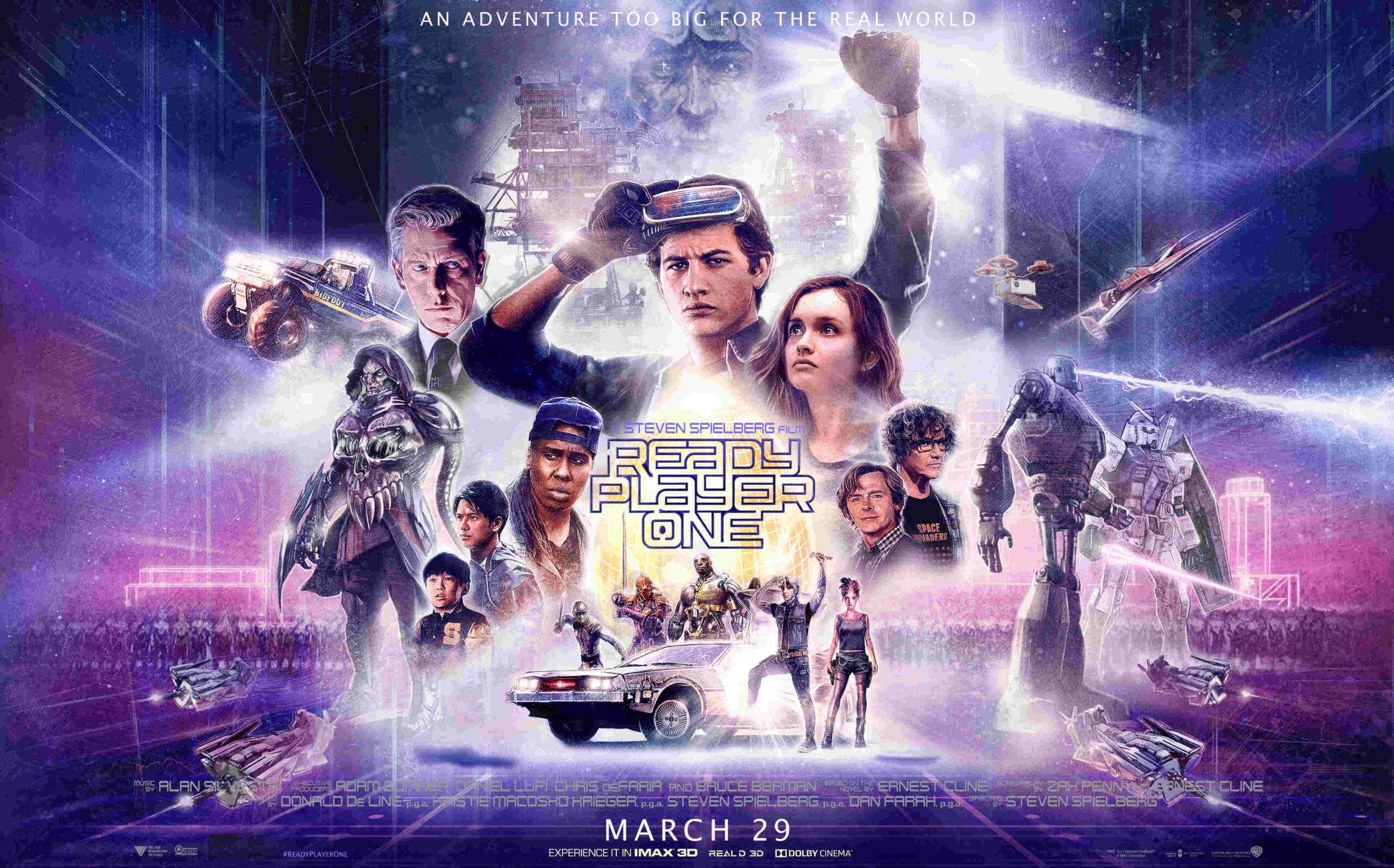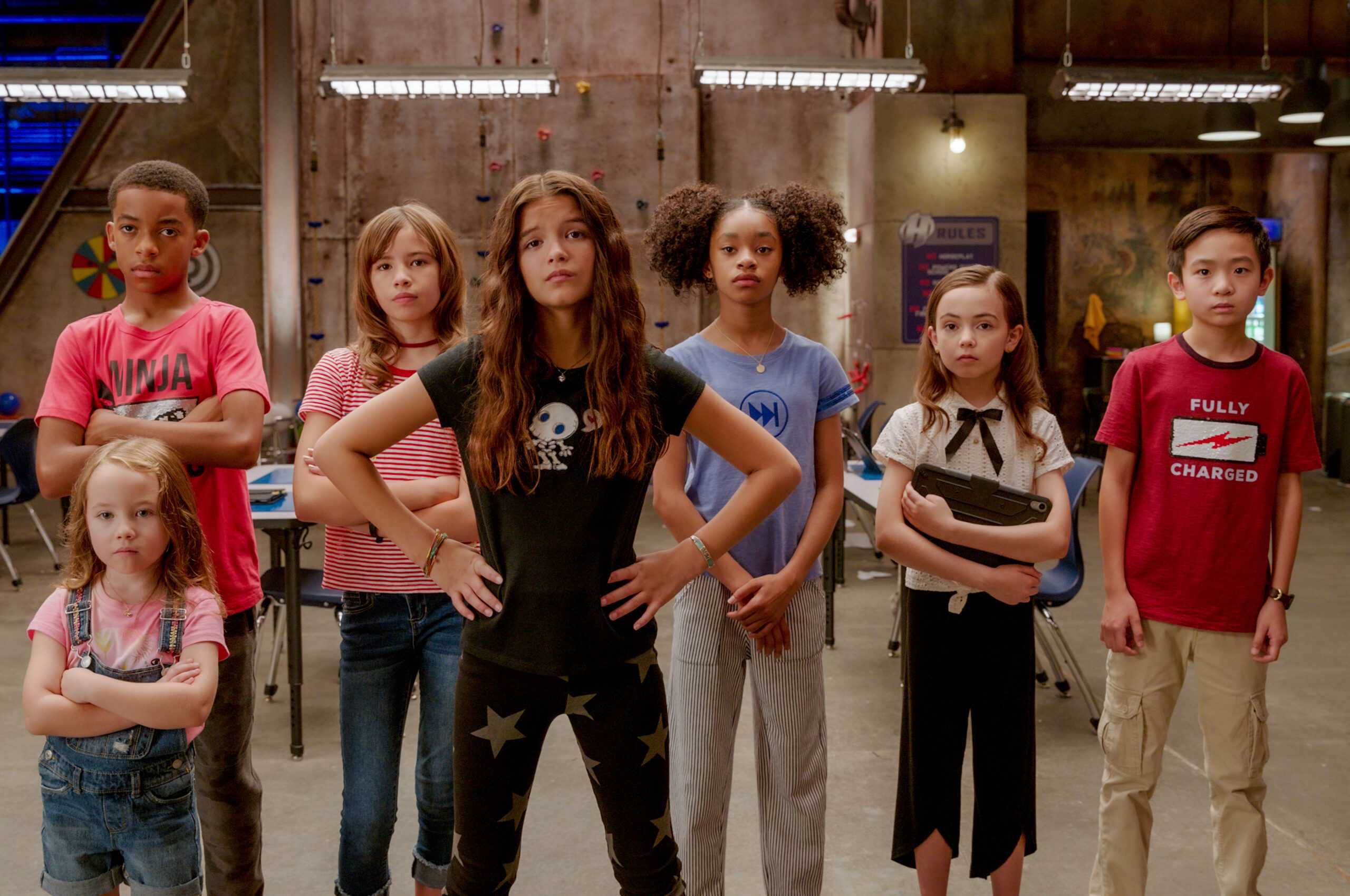Peterloo (2018)
Entertainment One Films
Directed by: Mike Leigh
Written by: Mike Leigh
Starring: Rory Kinnear, Maxine Peake, Nico Mirallegro & Adam Long
Mike Leigh is probably more well known for smaller dramas than his latest project Peterloo. Leigh has written and directed this feature, and the scale and ambition behind it has to be admired. It chronicles the events and characters that lead up to the tragic Peterloo Massacre of 1819, and despite this being an important event, it’s a moment in history that for my money, has never really received this level of attention before.
Set in and around Manchester, the story begins with a soldier returning to his home town after the battle of Waterloo. Traumatised by the event, we follow his reunion with his family and discover that the current economic situation they are facing is getting bleaker by the day. With the rich getting richer, and the poor getting poorer (sound familiar), there begins a movement to arrange a demonstration against the hierarchy of the land, in an attempt to bring democracy to the country, and giving every man a vote. During the first two acts, we meet a varied collection of characters and we see and hear the situation from ever point of view.
Leigh has went to great lengths to provide us with coverage of the situation from all angles, and as a result it could be fair to say that as a viewer, things become mired in the discussions that we bear witness too. From the gathering of local activists, to the government officials and land owners, we pretty much are given all the information we need to form opinions on the events, trouble is this is a laborious task that will send many to the bathroom or the snacks kiosk just to get a break. The wordy exchanges and dialogue driven scenes may be a little too much for many cinema goers, and while reclining in my Lux seat, there were moments where I could have drifted off. That may sound harsh during such an important screenplay, and I understand if you feel this a disservice, but that was the way I felt at the time, so best go give it a shot yourself and see if you feel the same.
While my thoughts were wandering though, I did focus on the overall look of the production, and that cannot be faulted. The acting is always exceptional, the look and atmosphere of the period is captured perfectly and there is some lovely cinematography on screen too.
The cast, including Maxine Peak as mother Nellie and Rory Kinnear as political activist Henry Hunt, are particularly good and we see Kinnear delivering his speech on the fateful day of the meeting you realise what a good Doctor Who he would have made.
As events start to converge on the peaceful pro democratic meeting, Leigh has placed all the players on the board into position for the tragic outcome. The working class families, including children and woman, are part of the 60,000 strong group that have walked miles to attend the protest, meanwhile in the ornate offices overlooking the meeting, the judges and elite try desperately to find a legal way of quelling the uprising by using any means available while the British troops and guards are waiting for the cue to attack. It’s a difficult final scene, disturbing and violent and it shifts the film into new territory. You are appalled at the carnage and shaken by the change in tone. The merciless attack on the innocents makes your blood boil and Leigh makes sure we know exactly who is to blame with no attempt to sugar coat anything.
With a final Blackadder-esque scene we are left feeling exhausted and outraged, no doubt what Leigh set out to do, so much so that you tend to forget the lengthy build up you have had to sit through to get there. This is an important historical offering that is overlooked in history but after the massacre the film simply leaves us hanging. There is no mention of the newspaper publications that reported the massacre and were punished for their efforts, some even being imprisoned for their writing. Perhaps Leigh wanted us to imagine the great change that occurred after the events, but the truth seems to be that many involved, including Hunt, were also incarcerated, and the guards involved in the charge were acquitted of any wrong doing. With further unrest on the horizon, the government implemented the Six Acts, that legally stopped any further radical meetings against them. Leaving the film felt unsatisfactory as I had no knowledge of the events before going in, I was disappointed to not get any info on what happened afterwards. That may show my ignorance in the matter, but I have to review this as a movie, and I would have liked something to get me up to speed at the end.
Brilliantly made, but lacking in areas, this is a film history buffs will love, and movie goers may avoid.



